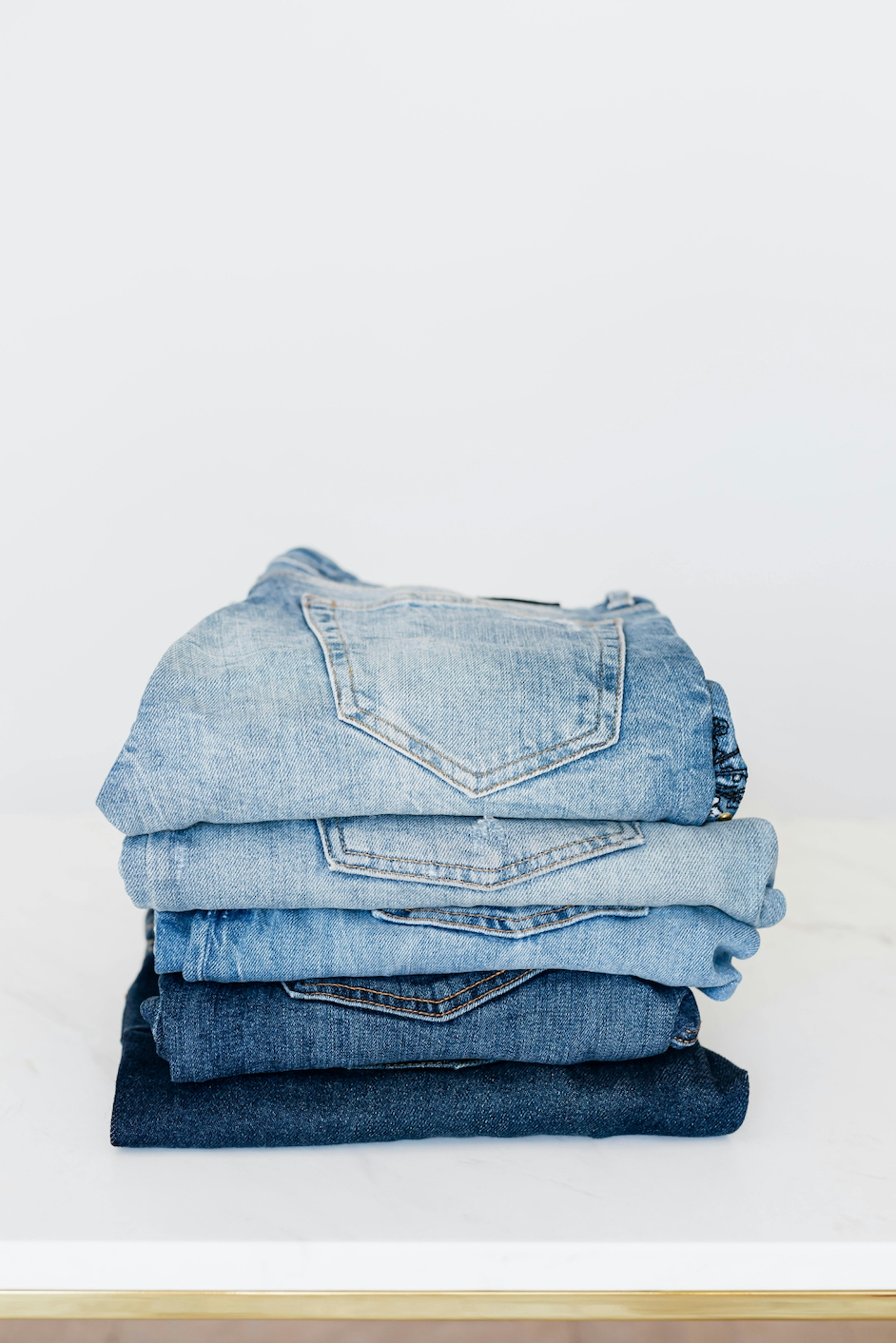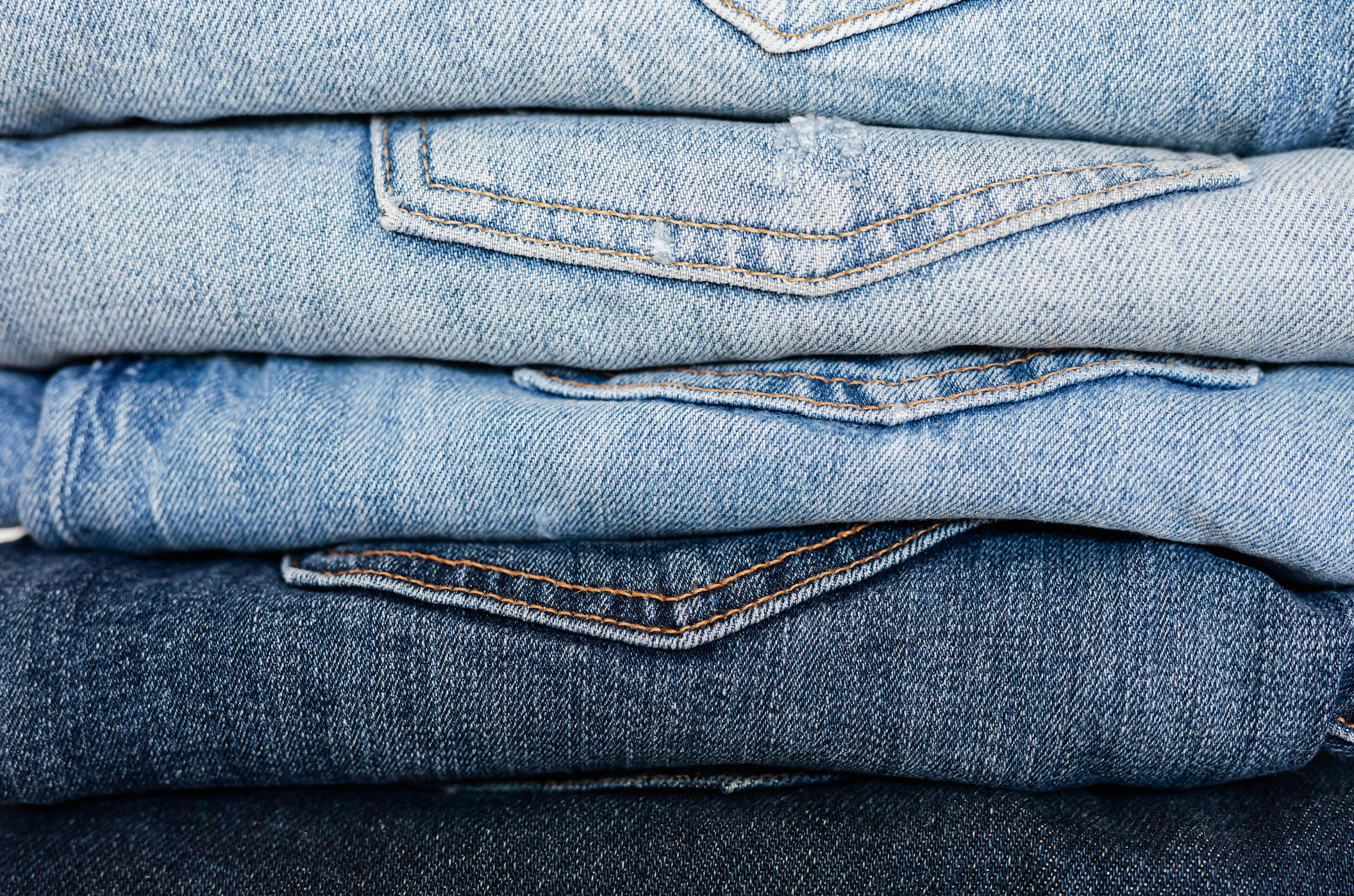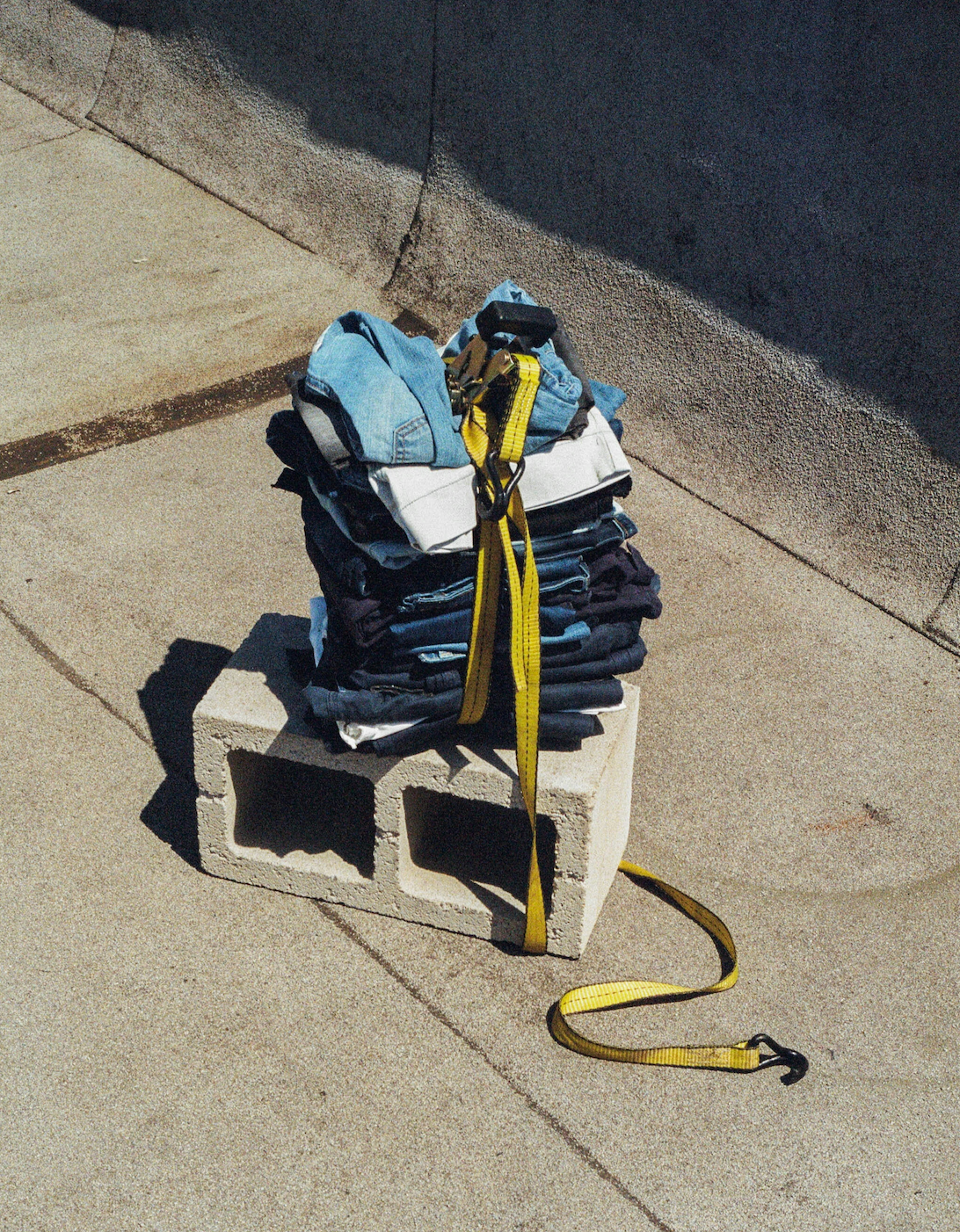The Future Of Denim Might Be Biodegradable
[ Story ]
Article

Few concepts cut as much a poetic form as the idea of something that has been made, easily returned to the earth. Biodegradability is a kind of biological artform that is crucial for the recycling of nutrients in ecosystems, and the ability for us to harness biodegradation could prove to be one of our strongest allies in combating climate change. So, what happens when one of fashion’s most beloved and most ecologically-intensive fabrics gets put to the biodegradation test? Well, miracles happen. The future of denim is biodegradable.
It might be one of the most enduring staples of fashion in the contemporary era, but denim – we’re afraid to say – is heavy on the planet. Traditional denim production has a significant environmental impact due to its requirements for excessive water consumption, pollution, and non-biodegradable waste. Manufacturing denim requires vast amounts of water for processes like dyeing, washing, and finishing, and the use of harsh chemicals and synthetic dyes during production results in water pollution, as untreated wastewater containing toxic substances is frequently discharged into rivers, harming aquatic ecosystems and communities.


Also, the use of non-biodegradable synthetic fibres, such as polyester blends, contributes to long-lasting waste in landfills, while the energy-intensive processes and carbon emissions further exacerbate the environmental footprint of traditional denim production. Due to its unique sturdiness as a fabric and as an enduring classic, denim has become one of the mantles first taken up by sustainable fashion; and we’ve seen a huge shift in how denim is made by new and traditional brands alike.
Conventional denim might have found a new frontier for itself — with the possibilities for biodegradability now being pioneered by some incredible brands. As always, technology takes centre stage in these latest achievements. To make denim biodegradable, an entire shift in production methods and materials have to be addressed and if it can be proven to be effective, the story of biodegradable denim could be a powerful case study in how revolutionising each detail within garment manufacturing is actually possible.





First, the fibre composition would need to shift from synthetic materials like polyester or elastane to 100% organic cotton or hemp, which are naturally decomposable. Traditional synthetic dyes and harsh chemical treatments would need to be replaced with natural, non-toxic alternatives to ensure the fabric can break down without harming the environment. Blended fabrics containing non-biodegradable synthetics should be avoided, and denim should focus on single fibre compositions made from plant-based materials. This kind of approach has been taken by Jacob Cohën who introduced their first pairs of ‘entirely compostable jeans’ with key details such as internal labels, linings, back labels, and thread that are all biodegradable, and buttons designed to be removed easily before composting.
Or, like heritage Turkish brand Calik Denim are demonstrating, technology could revolutionise the denim industry.
Calik Denim is leading the charge in biodegradable denim innovation with its groundbreaking B210 technology. While the exact mechanics of how the technology works remain proprietary, it is claimed to achieve over 99% biodegradability in just 210 days when applied to denim or other synthetic fibres—an area that has traditionally been challenging for the denim industry. This breakthrough could revolutionise synthetic fabrics, shifting them from being non-biodegradable materials destined for landfills to substances that can be processed back into the earth, benefiting ecosystems and massively reducing environmental waste.
Italian brand Candiani have also been making waves with their COREVA™ denim, purported to deliver the same stretch, softness, and durability as traditional stretch fabrics but with the added benefit of being fully compostable. Designed with circularity in mind, COREVA™ is plant-based and free from plastic, unlike conventional stretch fabrics that rely on elastane, a synthetic, fossil-fuel-derived material. When its life comes to an end, COREVA™ can be transformed into compost, disintegrating completely without leaving harmful residues, and even contributing to plant growth. The team at Candiani reported that, “we buried COREVA™ denim offcuts in the soil to see if it could help grow tomatoes. And guess what? It worked, and we made a pretty great pasta sauce out of them. Can we imagine a future where we eat what we wear?” Bringing together these poignant prospects of circularity —where nothing is wasted and everything has a purpose — COREVA™ denim presents a future where the lines become blurred, and new realities of how we make and create the things we love can actually enrich planetary health.
Calik Denim is leading the charge in biodegradable denim innovation with its groundbreaking B210 technology. While the exact mechanics of how the technology works remain proprietary, it is claimed to achieve over 99% biodegradability in just 210 days when applied to denim or other synthetic fibres—an area that has traditionally been challenging for the denim industry. This breakthrough could revolutionise synthetic fabrics, shifting them from being non-biodegradable materials destined for landfills to substances that can be processed back into the earth, benefiting ecosystems and massively reducing environmental waste.
Italian brand Candiani have also been making waves with their COREVA™ denim, purported to deliver the same stretch, softness, and durability as traditional stretch fabrics but with the added benefit of being fully compostable. Designed with circularity in mind, COREVA™ is plant-based and free from plastic, unlike conventional stretch fabrics that rely on elastane, a synthetic, fossil-fuel-derived material. When its life comes to an end, COREVA™ can be transformed into compost, disintegrating completely without leaving harmful residues, and even contributing to plant growth. The team at Candiani reported that, “we buried COREVA™ denim offcuts in the soil to see if it could help grow tomatoes. And guess what? It worked, and we made a pretty great pasta sauce out of them. Can we imagine a future where we eat what we wear?” Bringing together these poignant prospects of circularity —where nothing is wasted and everything has a purpose — COREVA™ denim presents a future where the lines become blurred, and new realities of how we make and create the things we love can actually enrich planetary health.

At Sneaker LAB, we’ve been thinking a lot about biodegradability — after all, it's a central tenet in our care product solutions, and we’re deeply aligned with our commitment that microorganism enzymes are already big players in humanity’s next evolutionary stage towards a healthier future.
So while you may not be ready to bury your jeans just yet, we’ve got you covered on how to care for your denim, prolonging its character and longevity for years to come. Sneaker LAB’s denim care range offers an innovative solution with biologically-derived ingredients that enrich the fabric’s essence, staying true to denim’s rebellious and classic origins while promoting ecologically responsible care practices. How we care for our garments gives each of us the power to reduce waste, champion sustainability, and ensure our favourite pieces last through time and trends, so we can all be part of adapting to a better future. We’re going to be obsessed with the idea of biodegradable denim for the foreseeable future — imagine if all fabrics could follow suit?
So while you may not be ready to bury your jeans just yet, we’ve got you covered on how to care for your denim, prolonging its character and longevity for years to come. Sneaker LAB’s denim care range offers an innovative solution with biologically-derived ingredients that enrich the fabric’s essence, staying true to denim’s rebellious and classic origins while promoting ecologically responsible care practices. How we care for our garments gives each of us the power to reduce waste, champion sustainability, and ensure our favourite pieces last through time and trends, so we can all be part of adapting to a better future. We’re going to be obsessed with the idea of biodegradable denim for the foreseeable future — imagine if all fabrics could follow suit?


[ Follow ]



